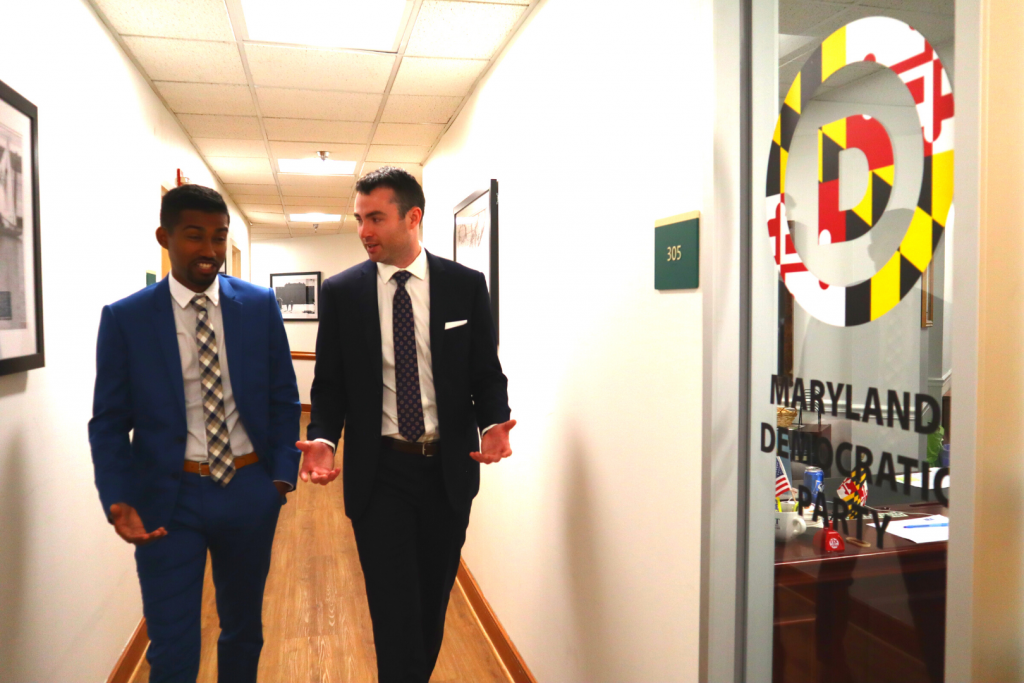
Political Director Michael Bayrd (Left) & Executive Director Ben Smith (Right) outside of Party Headquarters in Annapolis, MD
As Executive Director of the Maryland Democratic Party, I often find myself addressing some version of one particularly persistent question: “What does the Party do?” The question gets asked by everyone from grassroots activists to members of Congress, in small town coffee shops on the Eastern Shore where a dozen volunteers ponder how to build their local club, and in early morning meetings where Maryland’s most powerful elected officials have gathered to talk about the Party’s collective future.
“What does the Party do?”
I asked myself that question daily in the months before I took this job in December of 2018. I often posed the question in front of others as an act of frustration at the answer seeming to be “Nothing.” The question’s value quickly divorced itself from any answer that focused on the present and it took on new life as a challenge to give serious thought to what the Party should do — and the Maryland Democratic Party has spent the last year implementing answers worth taking seriously.
Get Democrats Elected
In order to understand what the answers became, it’s best to start with an understanding of what the answer used to be.
The State Party apparatus traditionally serves as a connective tissue of sorts that is responsible for providing some semblance of order and oversight to more local versions of the Party — known in Maryland as county Central Committees — while preserving institutional assets and events like the Voter File (a software platform that enables Democratic candidates and political organizations to search and export customized lists of Maryland’s registered voters) and state participation in the Democratic National Convention between campaign cycles. Constant fundraising to maintain a nest egg for subsequent campaigns is an ever present part of the conversation as well. Each activity is aimed at one driving answer to “What does the Party do?” Ultimately, the answer is “get Democrats elected.”
As with political rhetoric more broadly, “Get Democrats elected” means very little in itself. Like “Get America back to work”; “Clean up Government”; “Improve access to healthcare” and other common political catchphrases, it’s a platitude that can be mapped onto any number of wildly divergent actions. My team wants to get Democrats elected, but we believe getting Democrats elected depends on a more expansive set of underlying actions.
Simple Truths
Winning elections depends on getting more votes than your opponent(s). Simple enough, right? Let’s lay out a few other clear truths, political and otherwise:
- It’s easier to trust someone once you’ve built a relationship with them.
- It’s easier to appeal to someone’s needs once they’ve told you their needs.
- It’s easier to deploy a team when you’ve already recruited and trained the team.
- Bad data leads to bad actions.
- A good message needs a good medium.
The Maryland Democratic Party has applied the concepts above in pursuit of that organizing goal: get Democrats elected.
We’re improving trust in the Maryland Democratic Party by better engaging our local Central Committees, as well as state and local elected officials. This includes hiring paid organizers to work with our Central Committees and build long term relationships with them, as well as ensuring those organizers are residents of the communities they’re organizing. We’ve also begun incorporating state legislators, county council members, states attorneys, labor leaders, young activists, and advocacy groups into Party operations as guests on our podcasts, focal points of our emails, headliners for our fundraisers, and panelists at our Policy Summitt. We believe it’s imperative to elevate allies and elected officials who might not have access to platforms that more powerful leaders command, so that we can help them build and expand their long term brand.
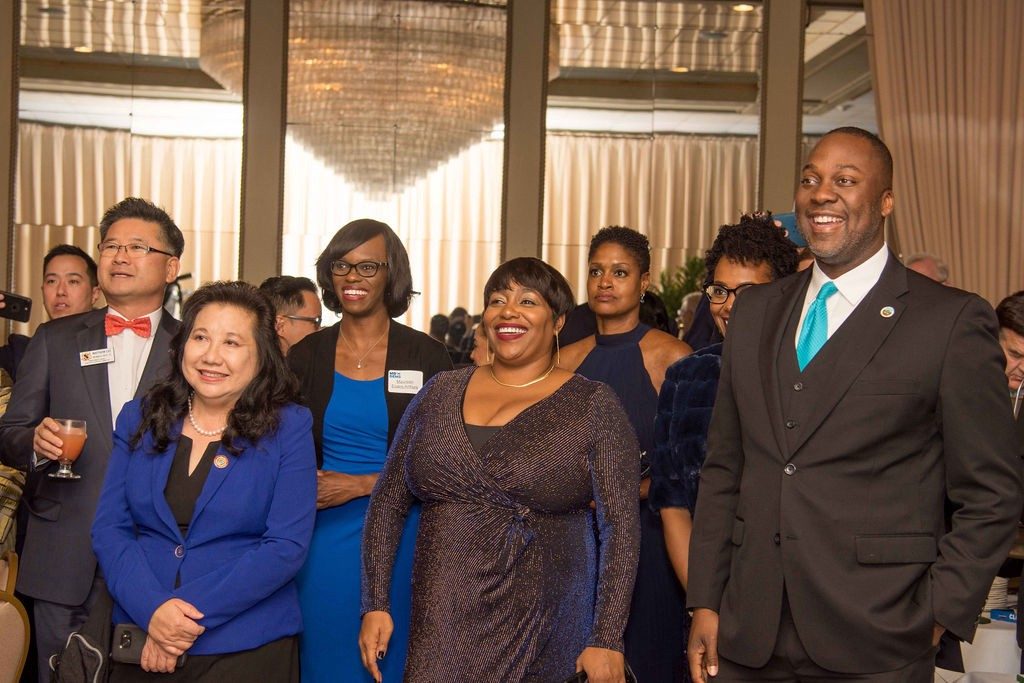
State Senator Susan Lee (front far left) and Howard County Executive Calvin Ball (front far right) at the 2019 MD Dems Gala
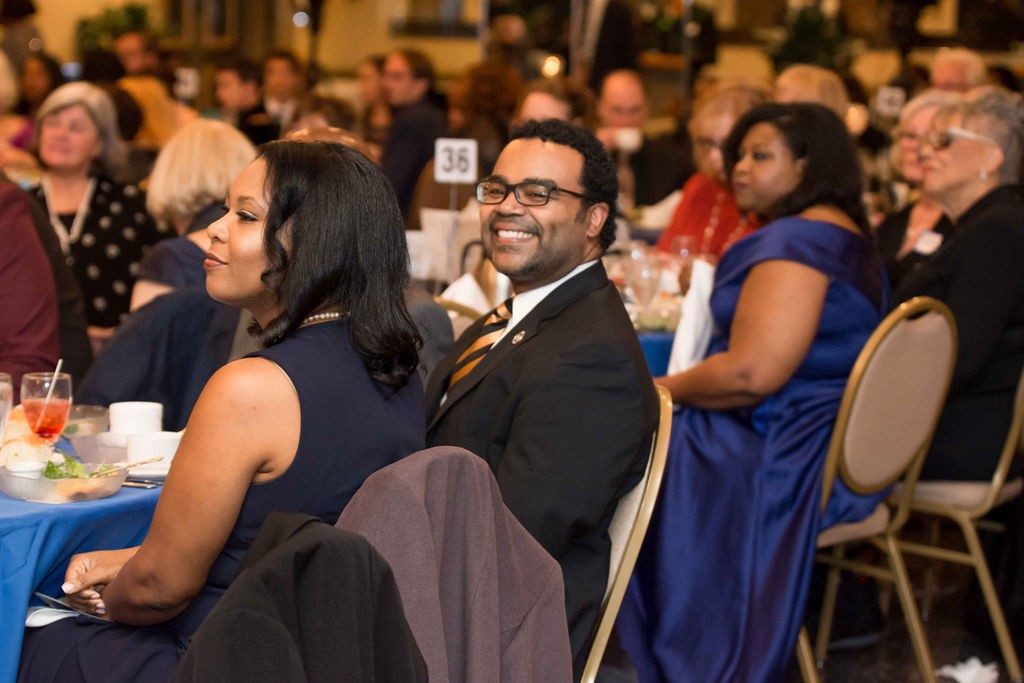
State Delegate Charles Sydnor III at the 2019 MD Dems Gala
We’re working to better understand voters’ needs by doing a better job of listening to those needs: Our organizers launch dozens of canvasses and phone banks across the state each month, aimed principally at identifying the issues voters care about most so that we can build our Party around those issues. We’ve also transitioned our social media platforms to include more interactive content, such as Facebook polls, that enable us to literally “give the people what they want” on a daily basis.
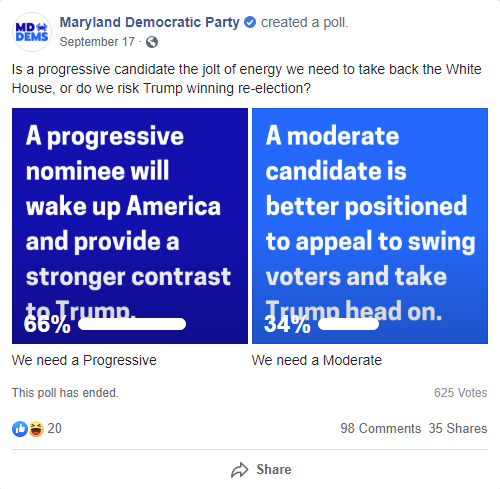
By regularly canvassing communities across the state, our organizers are also constantly recruiting, training, and deploying volunteers for direct voter contact. This process allows us to regularly build and maintain our volunteer base so that it is in “fighting shape” when election season rolls around. In so doing, we can prevent the lag in productivity that sometimes occurs between the conclusion of tough primary campaigns and the immediate onset of our general elections. By partnering with local central committees to house our year round organizers in regional hubs, we also create preexisting focal points for activity that are easily scaled during the general election, and allow for immediate distribution of campaign collateral like literature and yard signs.
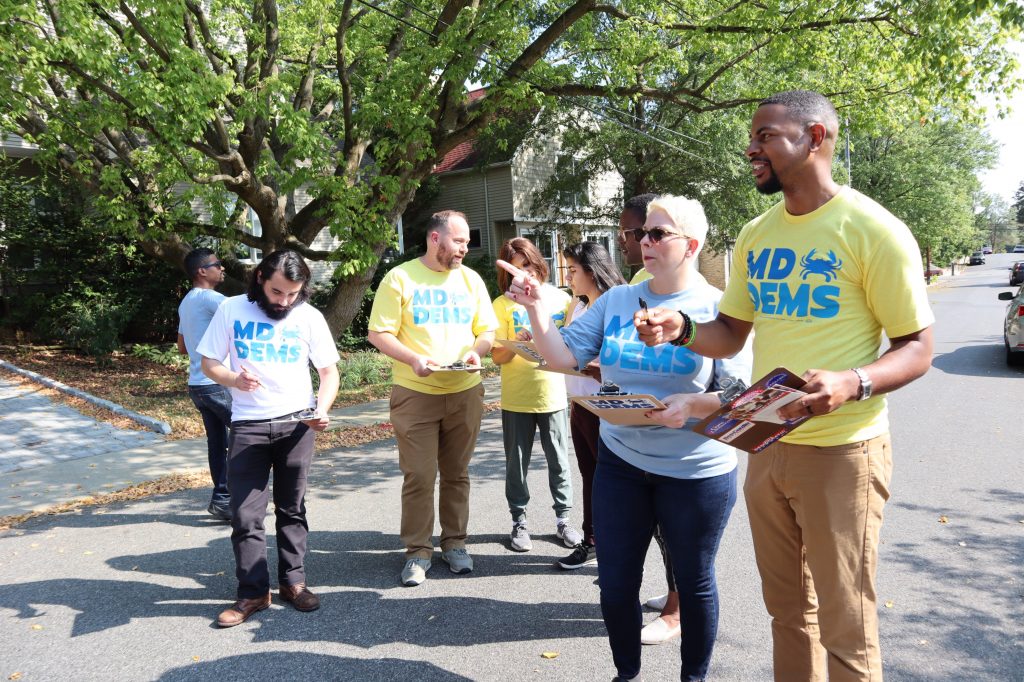
The activities above are all simultaneously aimed at improving the Maryland Democratic Party’s data pools: the strength of our volunteer lists, the contact information and issue IDs contained in our voter file, an understanding of what drives engagement on social media and email, and a clear picture of where our weakness as a Party are so that we can stymie disconnect within a region, demographic, or medium. By ensuring that we always have the best available data, we position ourselves to always take the best available course of action.
Build it and they will come
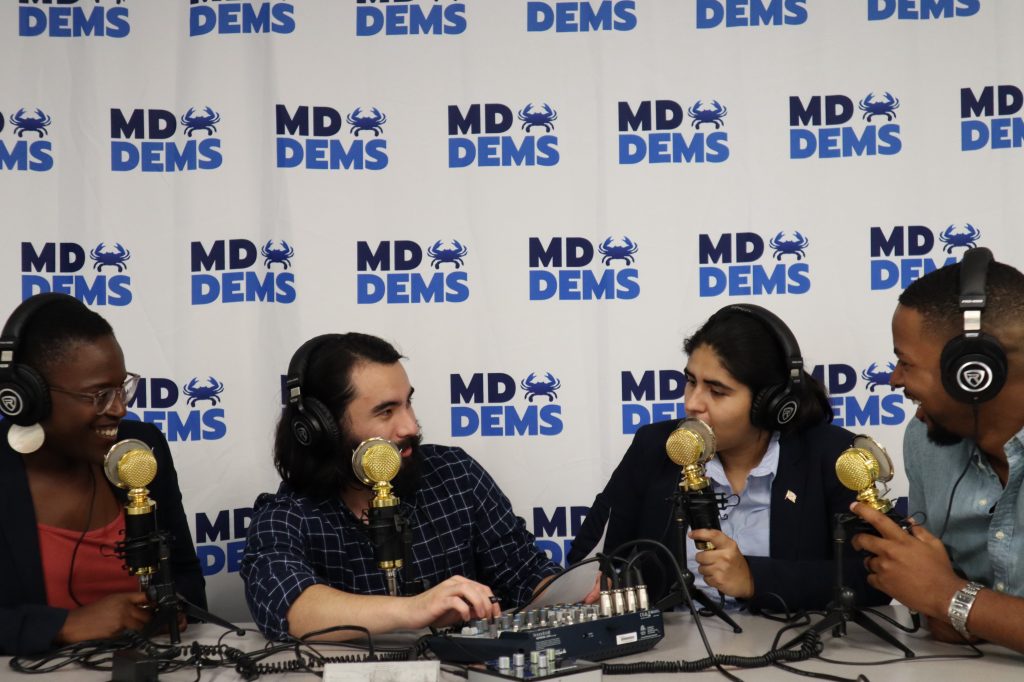
Finally, we’ve seized on new media as an opportunity to create pipelines directly to our audience that can be leveraged rapidly and without filter: we’ve launched a weekly podcast, tripled our email distribution audience, doubled per post Facebook engagement, and increased Twitter engagement by 83%. In so doing we’ve begun to ensure that Democrats everywhere know where the Party stands at all times, and are equipped to carry our message to their friends and families.
We all know the disconnect Democrats often run into when it comes to getting our message out: we have the best plans, and our plans help the most people, but we often struggle to connect and motivate people as effectively as we should. Our Republican opponents have mastered the art of misinformation and misdirection on social media, and have created media outlets whose sole mission is to perpetuate their message. We have a plan in place and resources devoted to competing in this space.
The Maryland Democratic Party of yesterday was a skeletal operation that could be fleshed out from campaign cycle to campaign cycle for a few months of flurried activity. The Maryland Democratic Party of today is a living, breathing, fully functioning body year round, focused on staying in fighting shape. We’re always on guard, because we can’t afford to be caught flat footed by the next Bob Ehrlich or Larry Hogan — the quality of life for millions of Marylanders depends on it.
Ben Smith is Executive Director of the Maryland Democratic Party. He holds a law degree from the Frances King Carey School of Law at the University of Maryland in Baltimore. Smith has spent the last decade in electoral politics as a policy consultant to Ben Jealous, as a political advisor to several state and local campaigns throughout Maryland, and as a principal at Tidemore Group. He’s spent the bulk of his career working with progressive organizations including organized labor and the Fight for $15 campaign in Maryland.
This is an ongoing series of essays focused on building the Democratic Party in Maryland.
